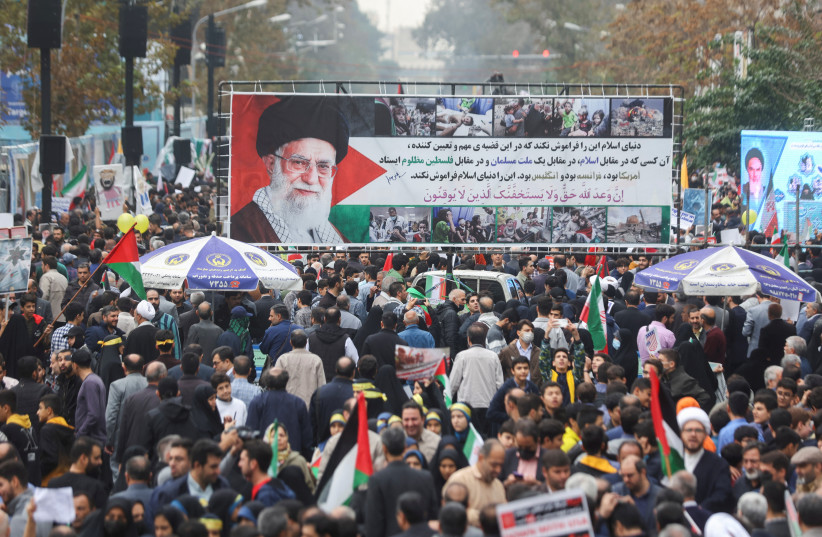Suddenly, everything appears backward about Iran and its nuclear threat.
With multiple leaks of the IAEA’s upcoming reports on Iran’s nuclear program on Wednesday signaling nuclear violations by the Islamic Republic, and progress reaching new highs, as well as turning loose its Hamas, Hezbollah, and Yemen Houthi proxies – one would think that the world would be ready to crack down on Tehran in unprecedented fashion.
Yet, though the IAEA Board of Directors is set to meet next week, giving it yet another opportunity to threaten the ayatollahs with global sanctions, some European diplomats are saying it is least likely to confront them now because of Operation Swords of Iron.
Iran's build-up of Hamas, threats to Israel
Why? Because they do not want to risk creating further instability in the war. Now, if you were to feel your powers of logic being suspended, then this would not be a surprise.
Iran has built up Hamas to the point that it managed to carry out its cross-border massacre attack on Southern Israel on October 7 at 29 different spots, synchronized with firing 3,000 rockets, dozens of drones, and motorized hang gliders.

Iran ordered Hezbollah to attack Israel with rockets and anti-tank missiles every day since then. It ordered Houthis in Yemen to attack Israel with ballistic missiles, triggering sirens in Eilat, and it ordered its proxies in Iraq to attack US forces.
So, the EU is worried that confronting Iran might cause instability.
Now, could things get worse if Hezbollah crossed the threshold into war? Yes, but it is not.
It seems then that Iran has played all of its cards.
If there were any time to confront the Islamic Republic over its nuclear program – without worrying about the fallout, because the fallout has already happened – this would be it.
IAEA sounds the nuclear alarm, says Iran can become like North Korea
On October 16, nearly 10 days into the war, IAEA chief Rafael Grossi sounded the alarm, saying the world must ensure the Iran nuclear standoff does not become like North Korea, where nuclear inspectors were expelled before testing could be administered.
“We have to deploy every effort to prevent this problem, this current debate on what is happening and what can be done in Iran [from] becoming a failure on the part of the international community to prevent a country that has capabilities which could potentially lead to the development of nuclear weapons from doing it,” said Grossi.
He added, “We saw the failure of this type in...North Korea.”
The current leaked report said that Grossi “continues to strongly condemn Iran’s sudden withdrawal of the designations of several experienced Agency inspectors,” referring to Iran’s decision in September to expel many of the IAEA’s key inspections staff.
The report makes it clear that if there was hope that the informal deal a few months ago that gave Iran billions of dollars in partial sanctions relief would lead to it freezing its uranium enrichment at the high 60% level – this hasn’t happened.
In fact, after a period where that enrichment slowed down, it picked up again, even if it is still not as fast as earlier in the year when the Islamic Republic received no large payoffs.
A deadly aspect of a major and confusing national security crisis, such as the current Israel-Gaza war, is that it blindsides to other potential crises, which become underestimated in the distraction of the moment.
It seems that here, Western officials are not merely blindsided, but they are losing their determination at exactly the moment when unflappable fortitude is required, and when the risks of not taking a hard line have already been played out.
If that is true, then the only hope is that Mossad is doing a better job keeping an eye on any Iranian attempts to sneak out to a nuclear weapon than Israel’s intelligence community did in missing Hamas’s October 7 invasion.
